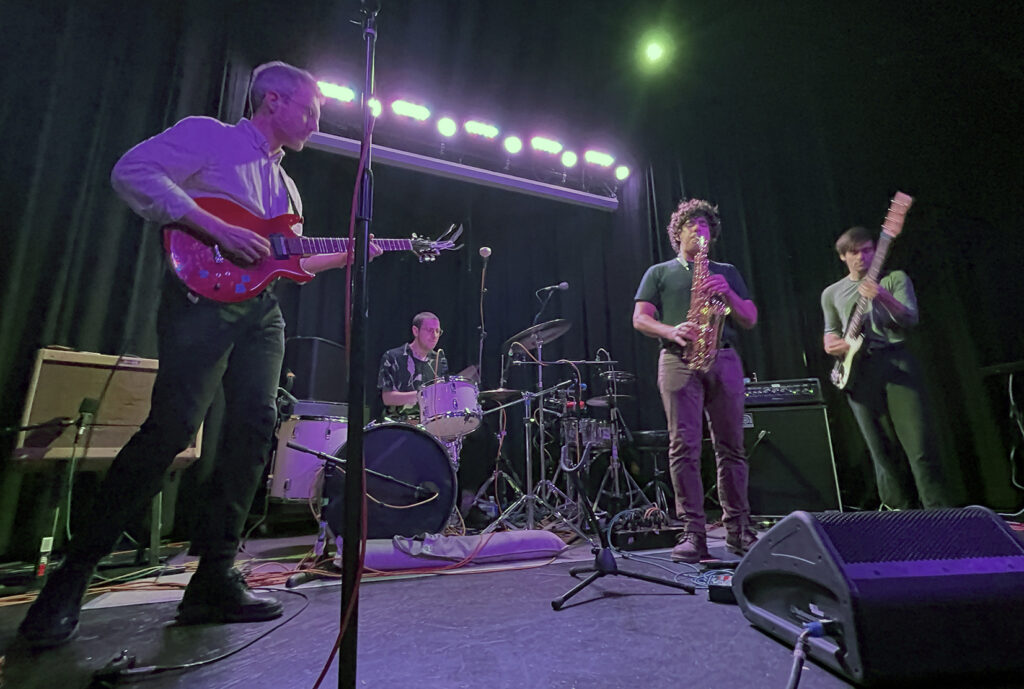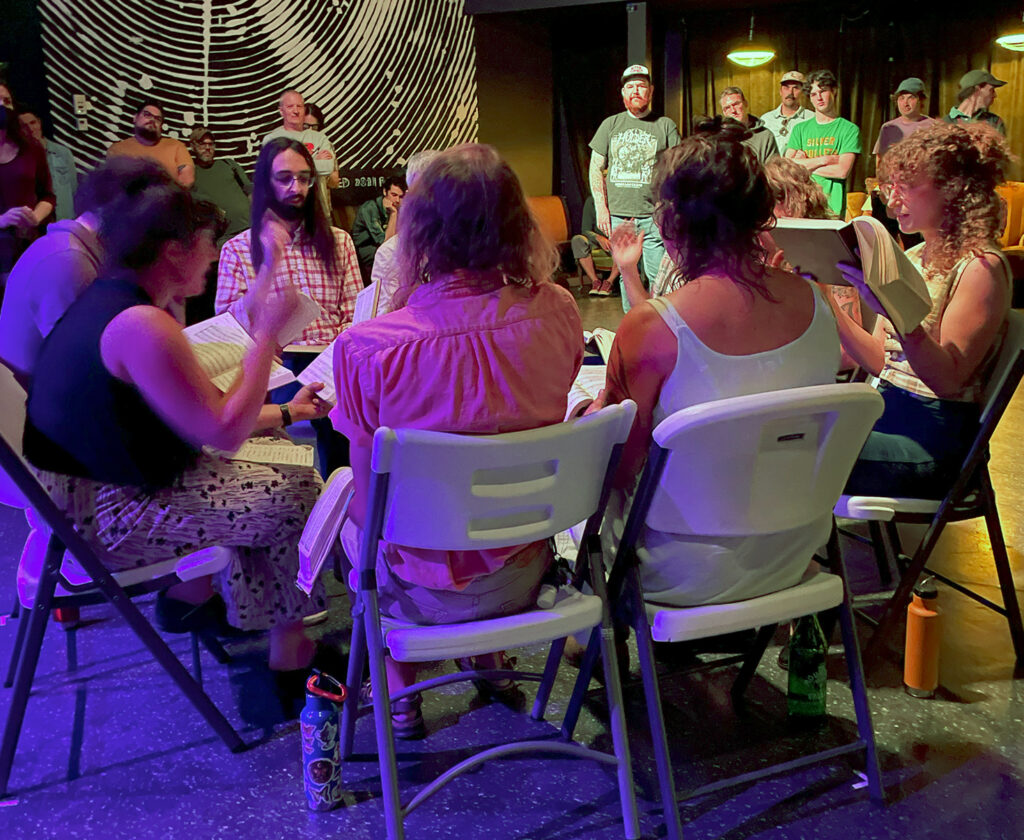
The noted avant-fusion band Horse Lords is in the midst of a West Coast tour that brought them to Seattle Center’s Vera Project Tuesday night, an opportunity to sample their distinct brand of polyrhythmic, phase-shifting instrumental rock—live and in full volume.
The group originated in Baltimore a decade ago, configured as a power trio fortified by looper pedals and a fourth musician (Andrew Bernstein) who alternates between alto sax and an additional set of drums. Their reputation, like their residence, has spread across North America and Europe in the ensuing years, with three of their members now residing in Germany, and the band garnering approbation for its glitchy, minimalist music that’s more intense than The Necks and more complex than Carl Stone—resembling what Steve Reich might have turned into if he’d been a rock-n-roller instead of a classically-trained composer.
Vera Project configured its modest-sized performance space like a dance floor, leaving most of it seatless, presumably in expectation of hosting a conventional rock band with an audience eager to dance. But disco regimens are hard to maintain when the tunes are in 6 and 7 time—or in one instance progressing from 5 to 3 to 2 beats per measure, with a repeating saxophone lick that was one note shorter than the band’s meter so that it eventually cycled its way back into sync. This is music designed mainly to be listened to. And pulling it off requires a band that’s extremely tight: a prerequisite amply fulfilled as the musicians traversed selections from their recent Comradely Objects, The Common Task and As It Happened: Horse Lords Live albums.
Opening the program was a group you’re more likely to encounter at Northwest Folklife than at a rock concert: the Pacific Northwest Sacred Harp Singers, who specialize in a tradition of a cappella protestant hymnody that originated in New England, where it was associated with names like William Billings (a contemporary of Mozart) and a “primitivist” sound, characterized by successions of root position chords, and simple polyphonic lines in the lower voices that cycle through three- or four-note cells drawn from a gapped or pentatonic scale. The genre quickly spread to the southern states where it came to be known as shape-note singing, after the customized notation designed to facilitate solfege, as used in the famous 1844 anthology The Sacred Harp). The music also acquired a jubilant, Africanized vocal style that evinces a common connection with modern gospel groups. The tradition also seems to have informed the distinctive style of Polynesian congregational singing captured in mid-20th century recordings, and whose musical characteristics strongly suggest the intervention of American missionaries, as its sound is quite distinct from the monophony of indigenous hula dances and the heightened speech of Māori haka songs.
Since its move to Seattle Center in 2007, Vera Project has lurked in the shadow of neighboring McCaw Hall and Climate Pledge Arena with a reputation as a quirky and somewhat amateurish community arts center with little experience attracting performers with an international following. But its current season has seen an increase in notable concert activity, and the Horse Lords event managed to draw a crowd of about 70 people, including young families with children—pretty impressive for this kind of music on a non-descript Tuesday night. The band does have a following at the intersection of the new music and indie/DIY communities, and the concert benefited from promotional support by The Stranger‘s Dave Segal and KBCS-FM’s Flotation Device show. But it’s still encouraging to see that this venue might be on its way toward establishing itself as an alternative in Seattle’s Lower Queen Anne neighborhood to The Royal Room in Columbia City, the Chapel Performance Space in Wallingford and the Neptune Theatre in the University District.

